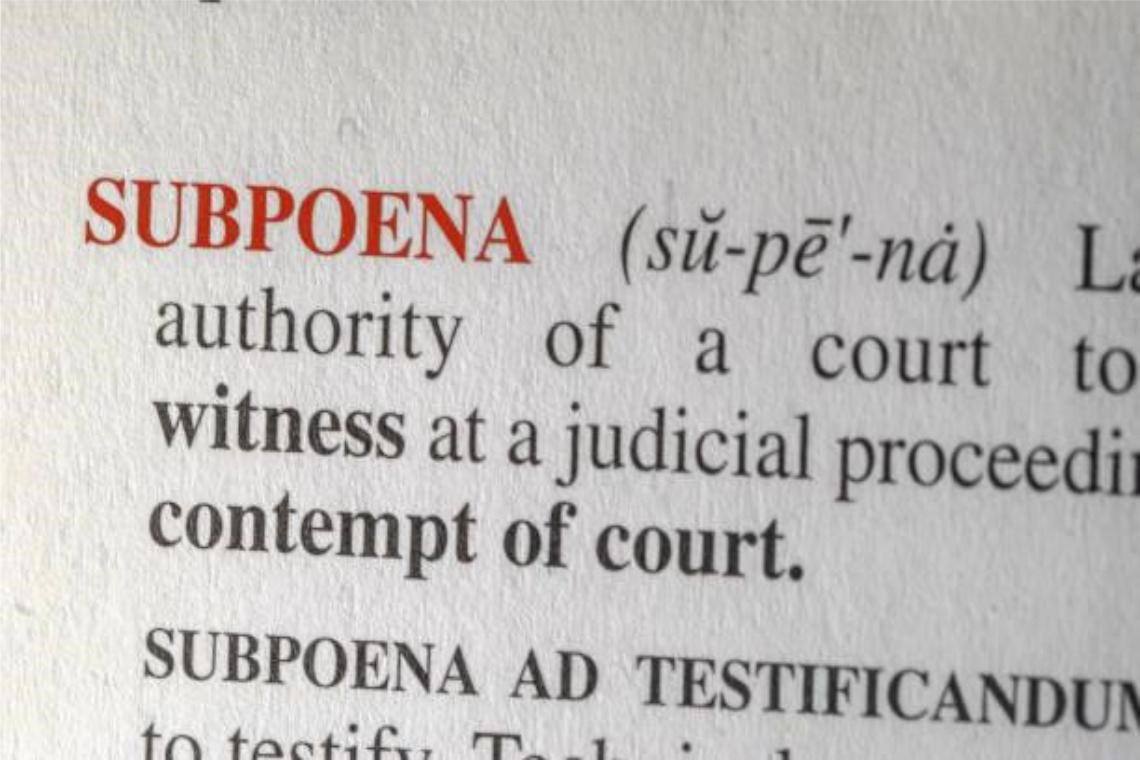Data and non-privileged communications between the Sulu Claimants’ legal teams and financial backer Therium are being subpoenaed at a dozen banks in New York. Image Source: iStock
Subpoenas have been filed in New York targeting banks for information on financial transfers linked to the convicted Spanish arbitrator Gonzalo Stampa, the legal team representing the Sulu claimants, and former litigation funder Therium.
The move comes as part of an expanding legal effort to trace the money trail behind the controversial arbitration case against Malaysia. Some observers might have believed Stampa’s conviction and the expected annulment of the arbitration award later this year would mark the end of the saga. However, the subpoenas are likely a precursor to broader lawsuits in Spain that could hold not only Stampa but also the claimants’ lawyers and financial backers accountable for the costs and fallout of the case.
“The subpoenas are likely a precursor to broader lawsuits in Spain that could hold not only Stampa but also the claimants’ lawyers and financial backers accountable for the costs and fallout of the case.”
Investigators are focusing in particular on financial documents that could clarify how litigation funder Therium used its investment to influence the arbitration process. Therium had reportedly committed around $20 million to finance the Sulu claimants’ legal battle. Questions have long been raised over whether this substantial funding gave the firm undue leverage to push the case forward, even as its prospects weakened.
“Questions are now being raised over whether this substantial funding gave Therium undue leverage to push the case forward, even as its prospects weakened.”
✉ Get the latest from KnowSulu
Updated headlines for free, straight to your inbox—no noise, just facts.
We collect your email only to send you updates. No third-party access. Ever. Your privacy matters. Read our Privacy Policy for full details.
These concerns grow even as criticism over the growing influence of litigation funders in both international and domestic disputes have intensified, as legal experts and advocacy groups warn that these financiers can exert undue control over key case decisions, including whether to proceed or settle.
Most recently in the United States, a number of top universities have filed countersuits in response to a student class action, alleging undisclosed influence by litigation funders, while the Lawyers for Civil Justice has called for stricter regulation to curb funders’ control. The organization points to past cases in which financial backers shaped litigation strategy, raising broader questions about ethics and the influence of a funders’ financial motives over the interest of claimants.
The reach of the current subpoenas against the Sulu claimants and their backers is notable. They target a wide range of major financial institutions, including Banco Santander, BBVA, CaixaBank, Banco Sabadell, UniCredit, Deutsche Bank, HSBC, Citibank, JPMorgan Chase, and The Bank of New York Mellon. The involvement of these banks underscores the global scope of the investigation and signals that authorities are determined to follow the money trail wherever it leads.
Observers note that the breadth of these actions is intended to send a clear message: those behind the Sulu arbitration cannot easily evade scrutiny. Therium, which has since restructured its operations to position itself as an advisory firm rather than a direct funder, appears to be distancing itself from the broader controversy surrounding third-party litigation funding. However, critics argue that such rebranding does little to absolve it of responsibility for the role it has already played in the Sulu arbitration.
“Critics argue that Therium’s rebranding does little to absolve it of responsibility for the role it has already played in the Sulu arbitration.”
Additional scrutiny has also fallen on the Spanish law firm B. Cremades & Asociados, which represented the Sulu claimants. KnowSulu has recently highlighted the firm’s unusually close ties to the claimants, raising questions about impartiality and potential conflicts of interest during the arbitration process. Although Stampa has been convicted and sentenced to six months in prison for contempt of court, legal analysts say that those who supported, funded, or influenced his actions remain exposed to potential liability.
What began as an obscure commercial arbitration over colonial-era agreements has evolved into a complex legal confrontation spanning multiple jurisdictions. The unfolding counteroffensive suggests that accountability may extend beyond the arbitrator himself to include the network of lawyers and financiers who enabled the case.
Far from closing the chapter on the long-running dispute, the recent subpoenas may mark the beginning of a new phase—one focused on uncovering the financial and legal mechanisms that sustained an arbitration effort plagued violations of procedure, questionable objectivity, and immense cost.
REFERENCES
KnowSulu. (2025, October 17)Spain’s top court upholds criminal conviction of arbitrator in Sulu case against Malaysia.https://knowsulu.ph
KnowSulu. (2025, July 4). What comes after the July 7 Sabah arbitration ruling? https://knowsulu.ph
Morcillo, N. (2025, November 3). Malasia se arma con información bancaria confidencial para demandar al árbitro del caso del sultán de Joló y los abogados de los heredeross. El País. https://elpais.com
Zarzalejos, Á. (2025, October 21). Caso del Sultán de Joló: La nueva guerra judicial millonaria que esconde la condena penal a Stampa. El Confidencial. https://www.elconfidencial.com



